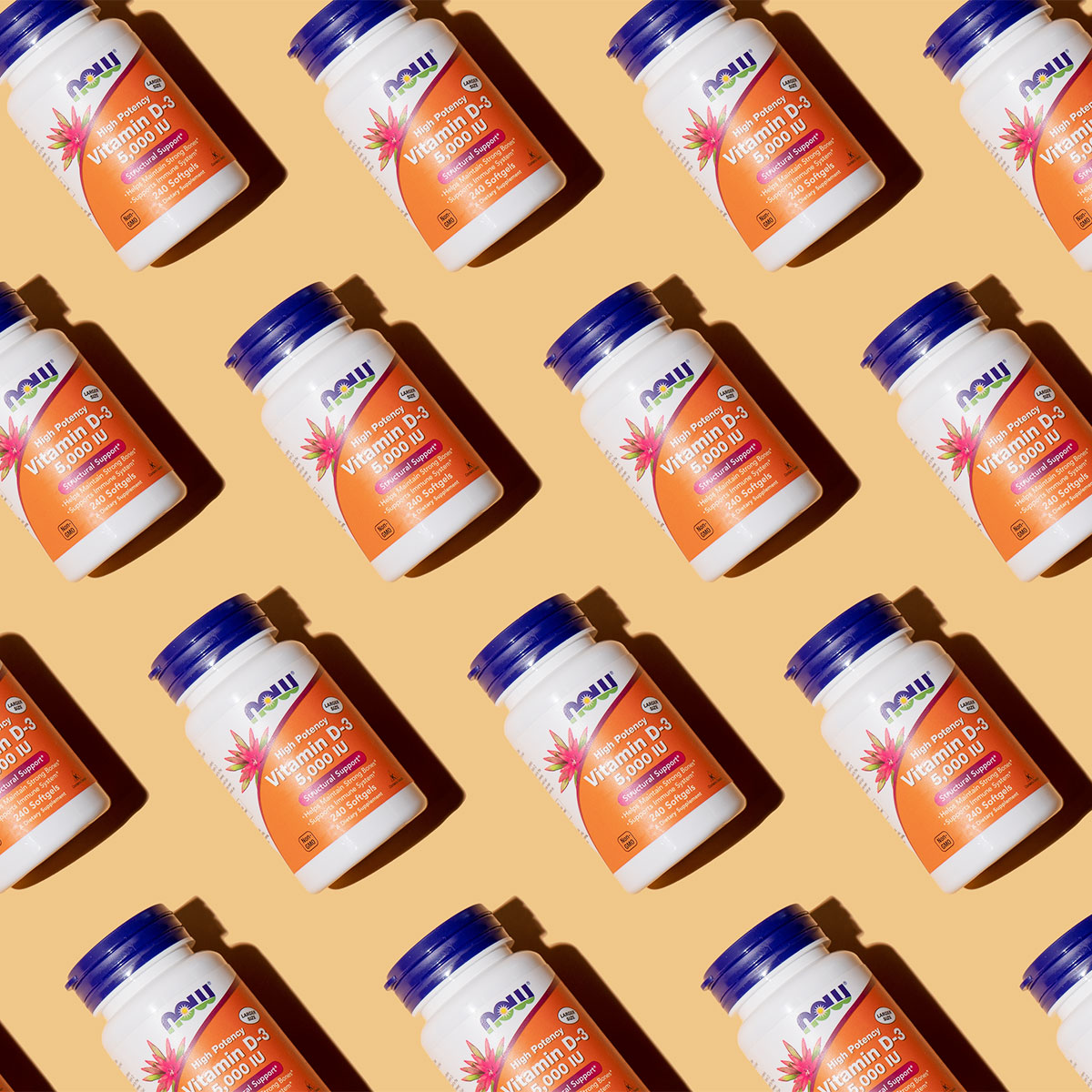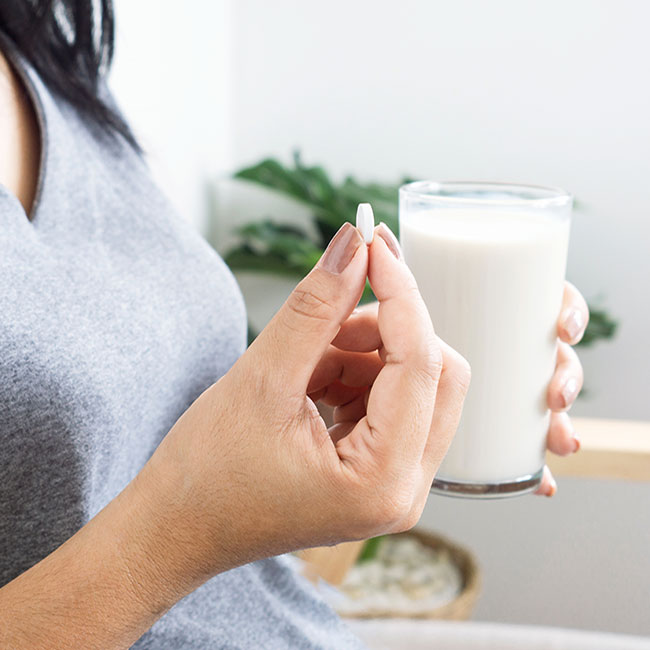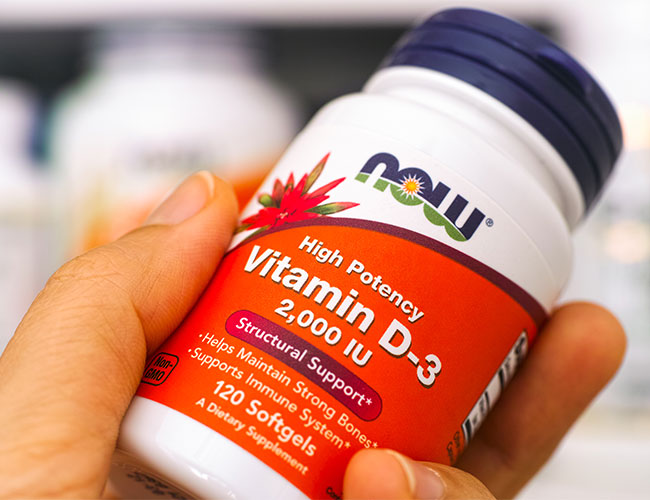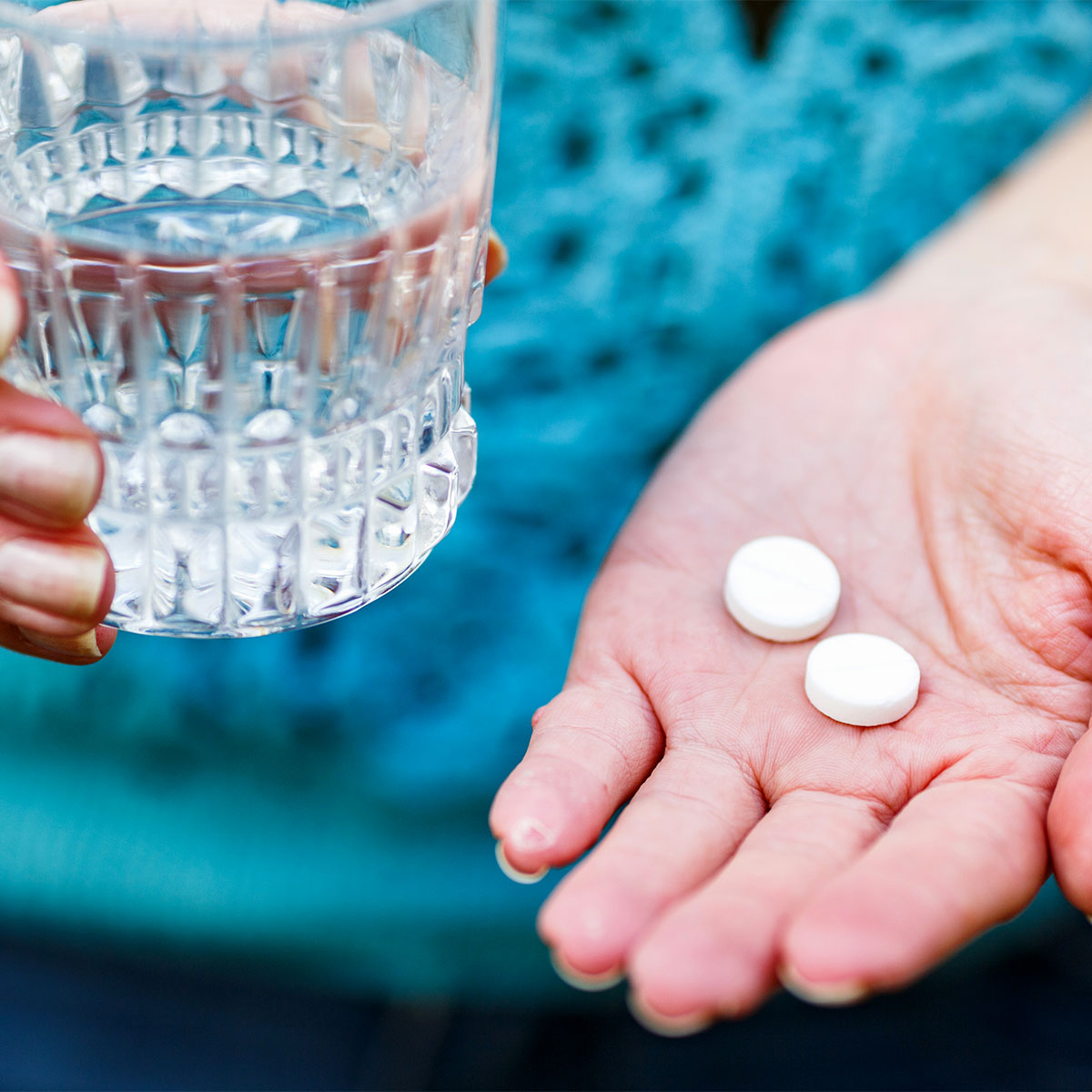Adding the right supplements to your diet can be one great way to ensure you’re consuming all of the nutrients your body needs to thrive and function to the best of its ability. While it’s always best to get essential vitamins and minerals straight from your diet, sometimes supplements can be a good choice. However, it’s always important to be aware of any potential risks at hand; as it turns out, some supplements can have dangerous downsides. One common supplement that may come with unexpected risks is Vitamin D. While it’s generally safe for consumption, there are a few potential downsides you should consider before adding it to your daily routine.
To get a rundown on a few of the lesser-known risks of taking a vitamin D supplement, we spoke to registered nutritionist Catherine Gervacio, BHSc, RND. She told us that, like many supplements and medications out there, consuming too much vitamin D could result in toxicity. Additionally, it could lead to dangerous interactions when taken with other dietary supplements. Learn more about the specific risks below.


1. Vitamin D toxicity can lead to kidney issues and more
Although Vitamin D has plenty of benefits to offer, including the fact that it can help support healthy bones, it's important to remember that too much of a good thing can be a bad thing. This is true even when it comes to essential vitamins like this one. Gervacio warns that excessive Vitamin D levels could result in toxicity.
"This can cause several symptoms including nausea, weakness, vomiting, and even kidney problems," she says. In fact, there are several supplements that could lead to kidney problems when consumed in excess.
"A condition called hypercalcemia, or excessive vitamin D due to high levels of calcium in the blood, can lead to kidney stones and cardiovascular problems," she adds. For this reason, it's crucial to stick to recommend doses.

2. Interactions with other medications
Another common downside to many supplements and medications is harmful interactions. Gervacio tells us that Vitamin D could lead to a few risks when combined with other supplements, including a lowered efficacy of medications.
"Vitamin D supplements may reduce the effectiveness of certain medications or may cause adverse effects," she says. "It’s very important to seek the recommendations of a health professional before considering taking this supplement especially if taking medications for weight control, cholesterol levels, asthma, or cancer." Noted!

Consuming vitamin D safely
So, what's the best way to lower your risk of these downsides? Gervacio tells us: "To safely consume vitamin D, it’s always best to consult a healthcare professional to determine your specific needs or if you really need supplementation. It’s also a best practice to follow the recommended dosage of a specific brand or the dosage prescription from your healthcare provider." You should follow the same guidelines for any supplement, vitamin, or medication you take.
"If you’re getting vitamin D from sunlight and are currently taking a supplement, you want to be cautious of sun exposure," she adds. "As for diet, you want to be aware of the natural food sources of vitamin D so you won’t have to consider supplementation." Luckily, there are plenty of great natural vitamin D sources out there, including dairy products and orange juice. "Rich sources are egg yolks, and fatty fish like salmon and tuna or meat liver," Gervacio suggests.
Finally, remember to regularly monitor your vitamin D levels. "Regular monitoring is also important especially when you are taking Vitamin D for a long time. This includes blood tests to determine toxicity or deficiency," she says.

The bottom line
At the end of the day, Vitamin D, like most supplements, is generally safe for consumption, but it's always a good idea to educate yourself on the risks. As long as you follow Gervacio's advice by sticking to recommended doses, speaking to your doctor, and monitoring your levels to avoid toxicity, you should be in good shape.


























